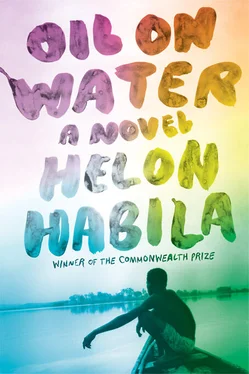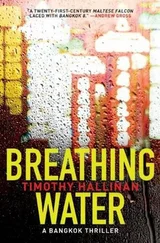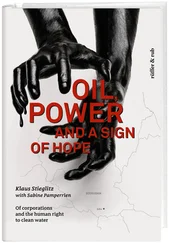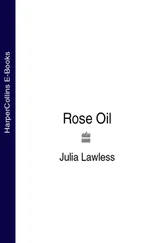— You’d do better if you joined the camp. The soldiers are not letting anyone off the island for a few more days. You can’t survive here that long.
The wife shook her head, grabbing her children to her bosom. He looked at me and then at his wife and the children. I guessed he’d do whatever she said.
— Where can I find a boat?
He looked at her and she nodded. Crawling from house to house, dashing forward, then stopping, he led me back into the woods. He took me near the waterfront, and between two thick trees, in a deep gorge that led all the way to the sea, cleverly covered by grass and sand and rocks, he unearthed a boat and two oars. He helped me push it to the water and pointed me in the right direction. The sea was very narrow here; all I had to do was cross it and on the other side I’d find the river that led inland.
I waved as the boat pulled away, and he stood there a long time, waving back. For a moment he had put aside the enormous responsibilities of protecting his family, and now he had to return. And soon I had no need for the long oar — the water was swift, the waves were high and then low, and it wasn’t long before there was as much water in the boat as in the sea. The waves flashed at me, white and swift and startling, carrying me away.
ON A SPIT OF DRY LAND in the middle of the sea — that was how they found me, they told me. There was no sign of my boat, and I was unconscious and spitting out water. I was discovered by a group of villagers venturing far from their little village to where the fishing was better, and if they hadn’t gone that far, or if they had been an hour later, I’d have died, exposed, cold, belly-up, like a beached fish. It seemed I had made it to the river, more by accident than by my own efforts. I woke up in a little room filled with smoked fish left to dry on racks. A single lamp hung from the roof on a long hook. In its weak, smoky light I saw that everywhere was covered with fish, and the only space left was where I was lying on a mat against the wall. The smell of fish got me crawling to the door and emptying my stomach on the doorstep.
They didn’t ask who I was and where I was going and why I was here; they only asked if I was strong enough to move on. These were dangerous waters, and I could be an escaped hostage. The last thing they wanted was a boatload of gun-wielding militants berthing on their shore. If I was going to get out of there, I had to regain my strength. I slurped the thick corn porridge they gave me with superhuman concentration and then went outside and threw up. I asked for more, my hands shaking. There were four people peering down at me: an old man seated on a rickety hand-carved stool, fair-skinned, with hairs all over his face and growing like tendrils out of his nostrils and ears and armpits and out of the top of his singlet; a fat woman standing over him, the hair on her head white and knotted; and two silent men standing in the shadows behind the fat woman, not saying much, not much hair on their heads. A smoky lamp on a hook hung from the roof. The woman took the bowl from my hands and shook her head.
— No more.
I slept for a half hour or so and didn’t even notice the fish smell. When I woke up I was strong enough to eat a whole fish. Catfish, the whiskers on its intact face looking like the hairs on the old man’s face. I told the old man I was a journalist and I was on my way to Port Harcourt.
— Ah, Port Harcourt, very far from here.
He pointed up with his hand, and from the way he pointed, and the vague, uncomprehending look on his face, Port Harcourt might have been on the moon. The others nodded.
— Can you help me?
— Everybody wan go Port Harcourt. You go enter ferry from Irikefe.
— I’ve come from Irikefe. There’s fighting going on there.
Again, they didn’t ask for details, though surely they must have been aware of the fight? News traveled fast on the water, from island to island, from creek to creek, boat to boat, hut to hut. They continued to stare at me in silence, and the lamp grew smokier above us, making my eyes water. It took a while before I registered something odd in the man’s comment.
— What do you mean, everybody wants to go to Port Harcourt? Who else wants to go there?
They looked at each other. Their eyes expressed their debate, whether to trust me — a stranger who had just washed up on their shore — or not.
— I’m a journalist. You can trust me.
The woman spoke first. She said a white woman was there three days ago, wanting a boat to go to Port Harcourt.
— Was she alone?
— No. One man dey with am. Him name na Salomon.
Isabel Floode. And Salomon, the wanted driver. The two had arrived in a boat, the woman’s face blackened with charcoal, dressed in a man’s clothes, her hair covered in a hat, but there was no hiding the blue eyes when she came closer, nor was there disguising the voice, the speech. She didn’t look very well, her arms were covered in bug bites and rashes and she looked weak, but she was determined to go to Port Harcourt at once. They spent the night there because they had arrived very late. They didn’t say much about where they were from or who they were, but they did promise the villagers a lot of money if they would help them get to Irikefe in the morning, from where they’d get the ferry to Port Harcourt. But then the fighting had broken out.
— Where is she now?
— We send her to Chief Ibiram.
— Chief Ibiram?
— Yes. Him place no far from here.
I looked around the little room, the three faces staring at me. I tried to imagine the woman here, her life in the hands of Salomon and these simple fishing folk. Until now I had only thought of her as a subject, if I thought of her at all, but now, perhaps because of my weakened state, I found myself trying to imagine what must have gone through her mind. How did she manage to escape, coming so far, only to discover the fighting at Irikefe? But why didn’t she go to the soldiers? I looked outside at the forest and the abandoned boats on the water, the few thatched huts, and I thought, what could fate possibly want with her on these oil-polluted waters? The forsaken villages, the gas flares, the stumps of pipes from exhausted wells with their heads capped and left jutting out of the oil-scorched earth, and the ever-present pipelines crisscrossing the landscape, sometimes like tree roots surfacing far away from the parent tree, sometimes like diseased veins on the back of an old shriveled hand, and sometimes in squiggles like ominous writing on the wall. Maybe fate wanted to show her firsthand the carcasses of the fish and crabs and waterbirds that floated on the deserted beaches of these tiny towns and villages and islands every morning, killed by the oil her husband was helping to produce.
— Listen, you must take me to Chief Ibiram now. He is a friend. I have to meet the white woman.
They looked at each other and shook their heads.
— Chief Ibiram don go. E no dey here anymore. E say e no wan stay here anymore, because of so so fighting and because of bad fishing.
— So where is he going to?
They all pointed in the same direction: northward. That meant Port Harcourt, and that explained why they had sent the woman to him: to hitch a ride on one of his boats — it was her best chance of getting there. With the whole clan on the move, she could travel with them undetected.
It was not easy: First I had to convince them I was strong enoughto leave, then I had to convince them we could catch up with Chief Ibiram if we left immediately. When words failed I waved my big wet wad of James Floode’s money before the hirsute old man, and he nodded. Two young men, Charles and Peter, eager and full of questions, set out with me in one of the village’s few riverworthy boats, and we headed north, hoping Chief Ibiram and his clan hadn’t already put too much distance between themselves and us. Charles, it turned out, was the one who had taken Salomon and Isabel to Chief Ibiram. He said Chief Ibiram and his people had left their settlement late the previous night, preferring to travel under cover of darkness, and by his estimate that put them at least ten hours ahead of us, but because they had children and women they’d be forced to stop often. If we went hard without a pause — we carried two extra gallons of petrol to avoid stopping for refills — we should be able to catch up with them before sunset.
Читать дальше












